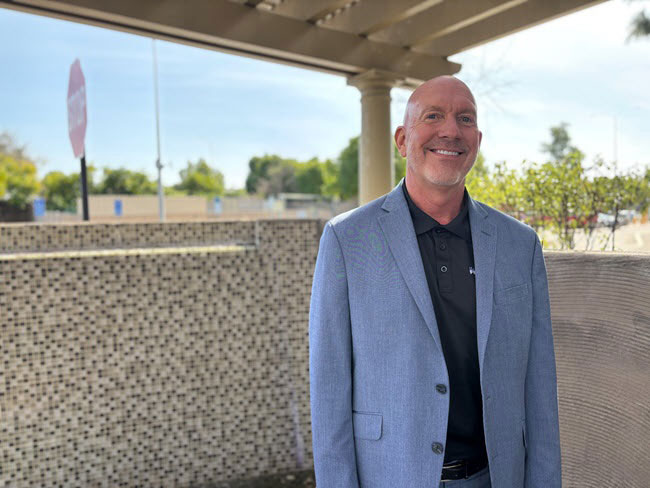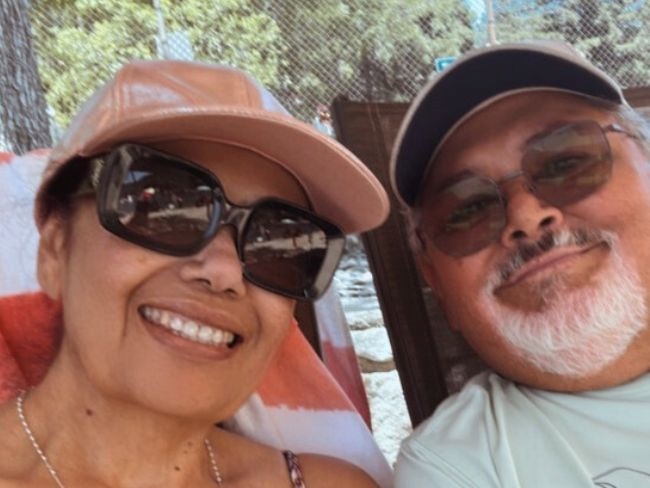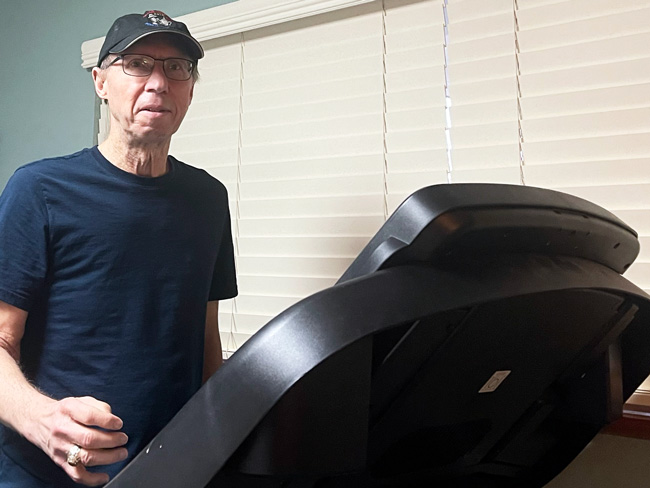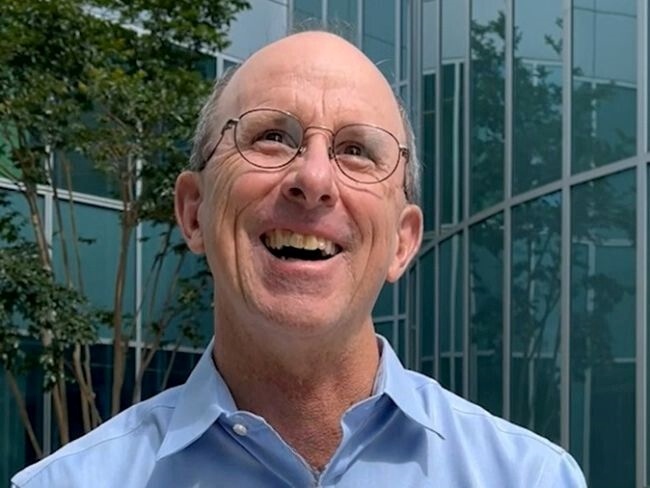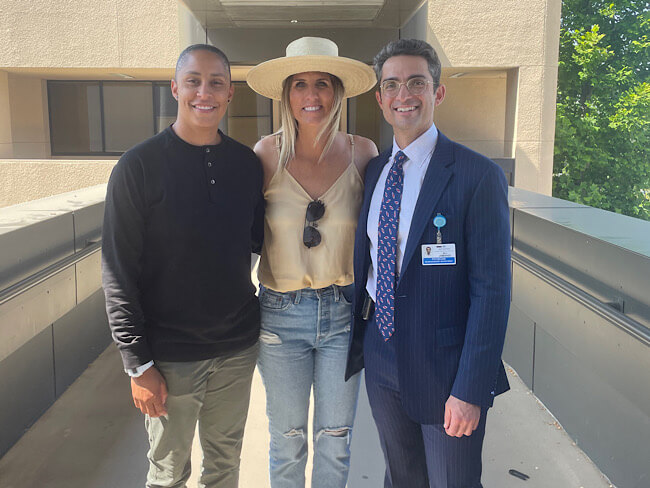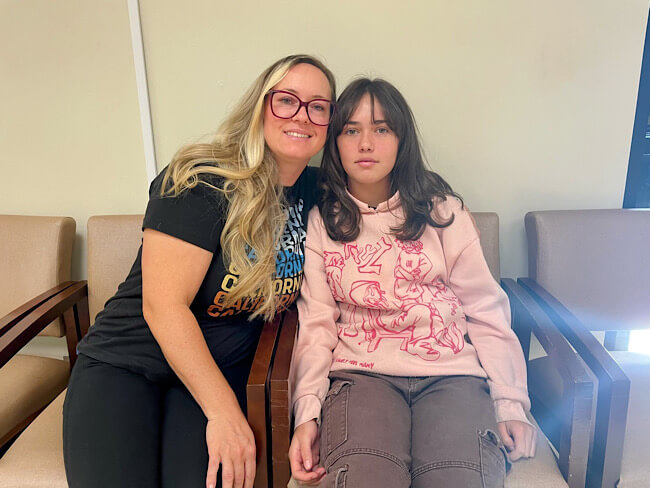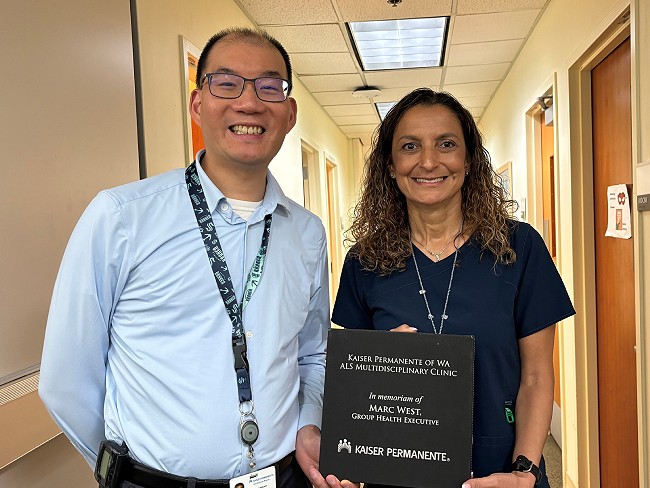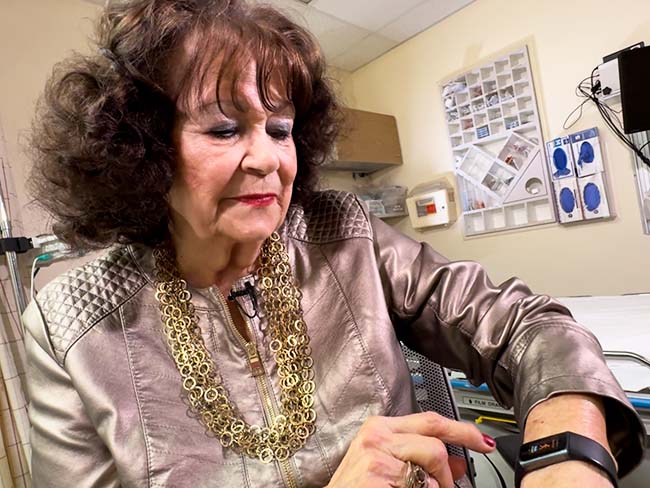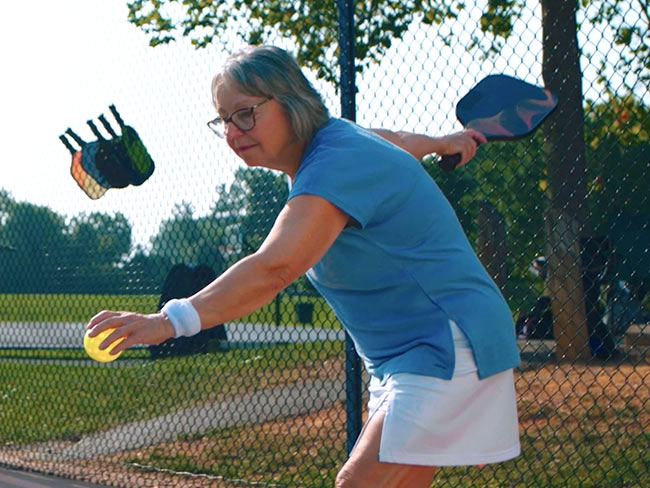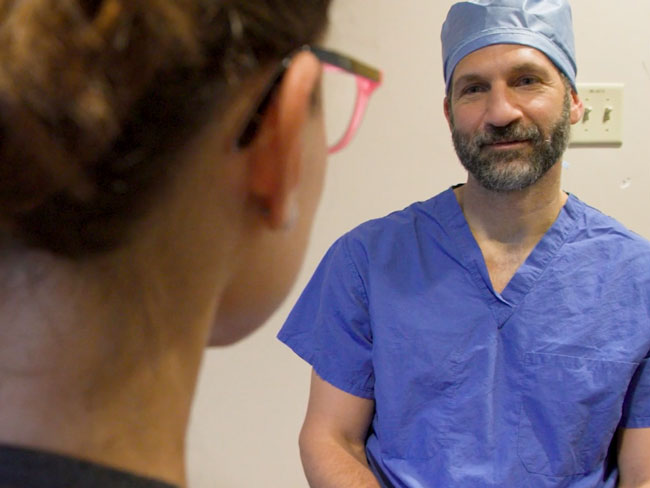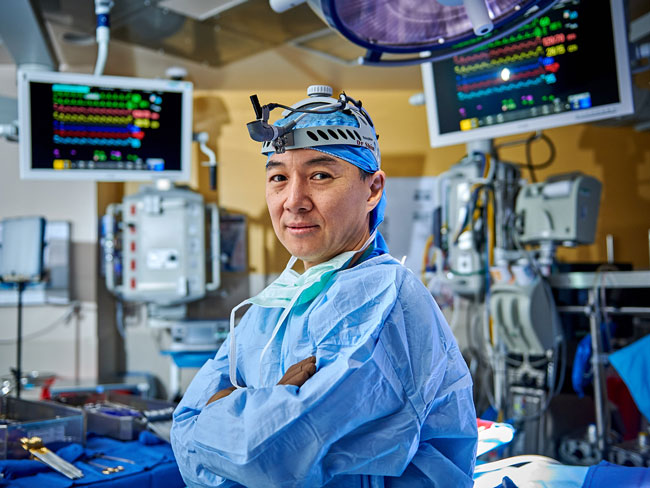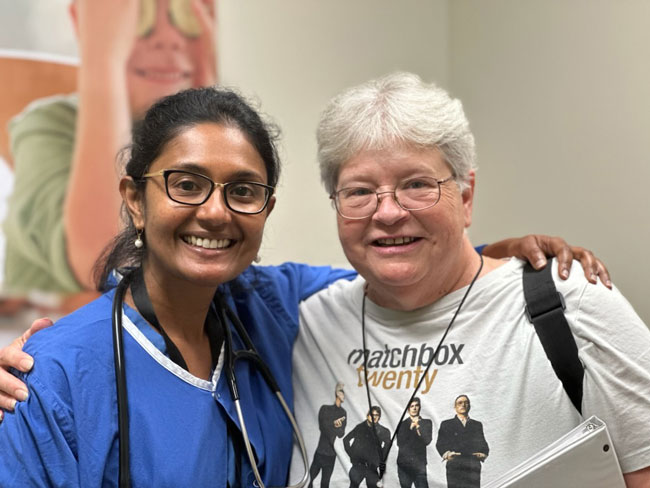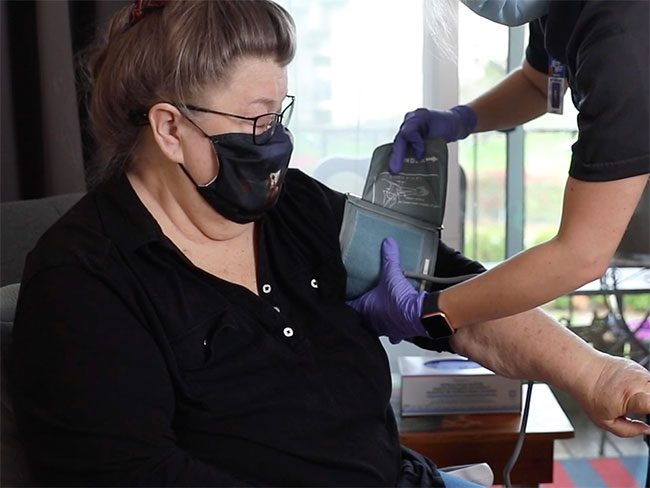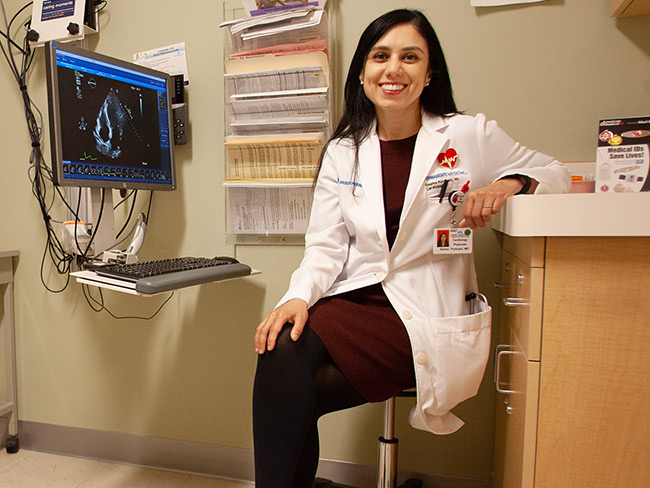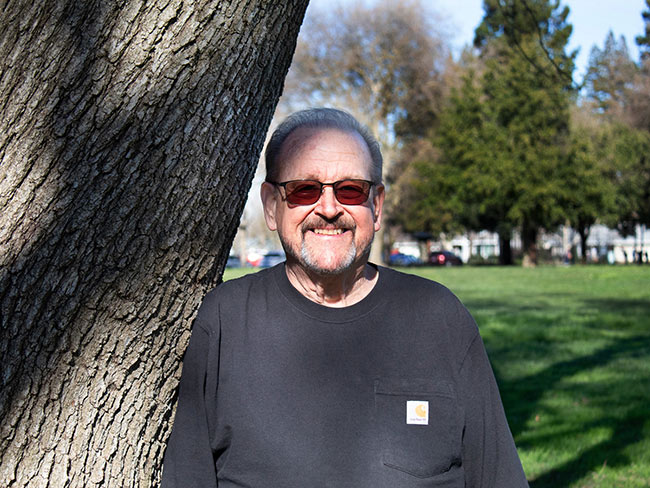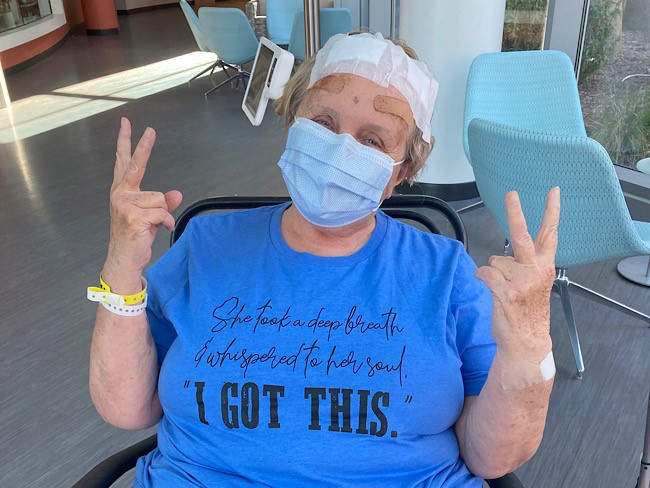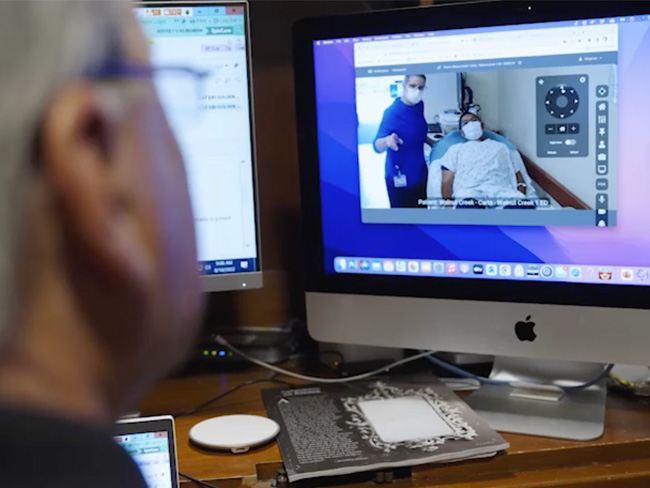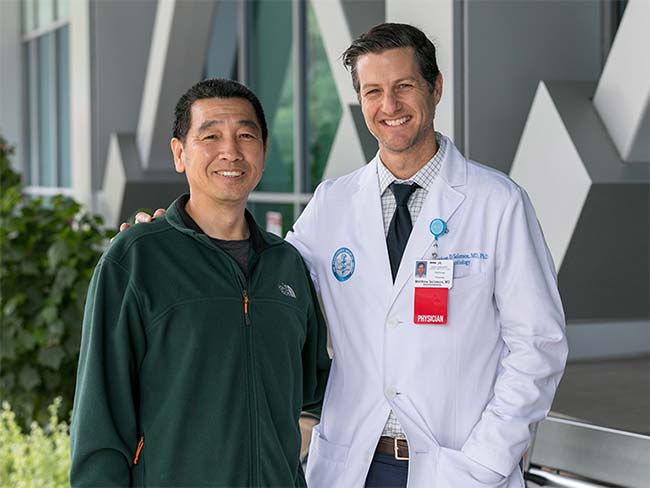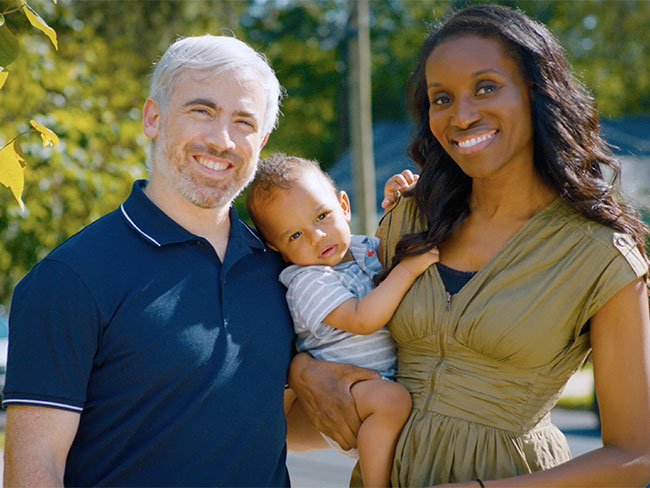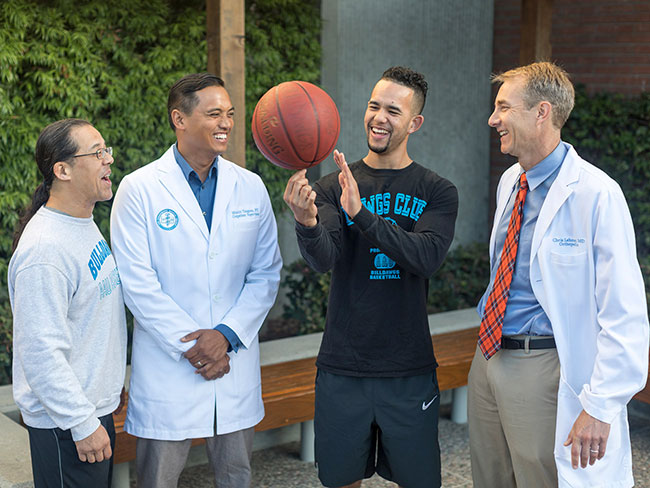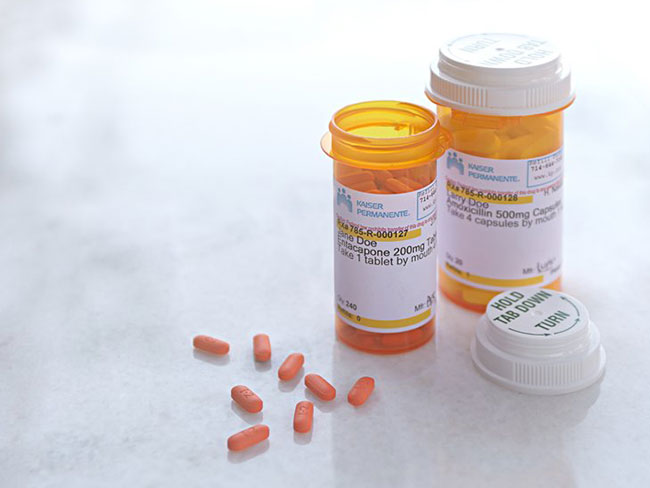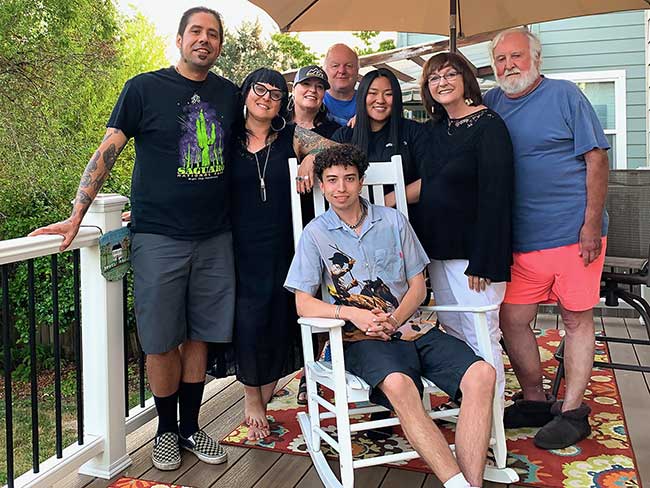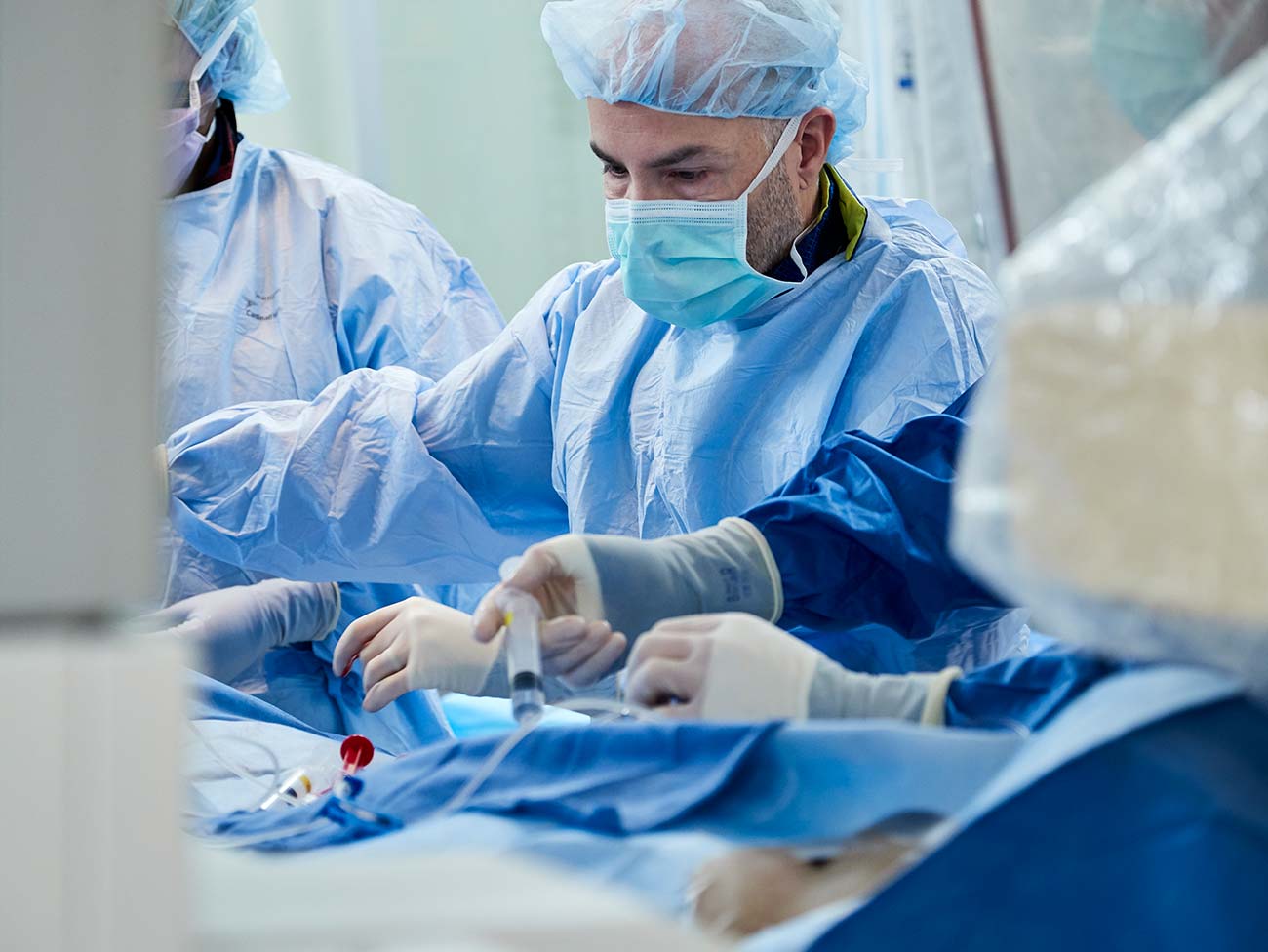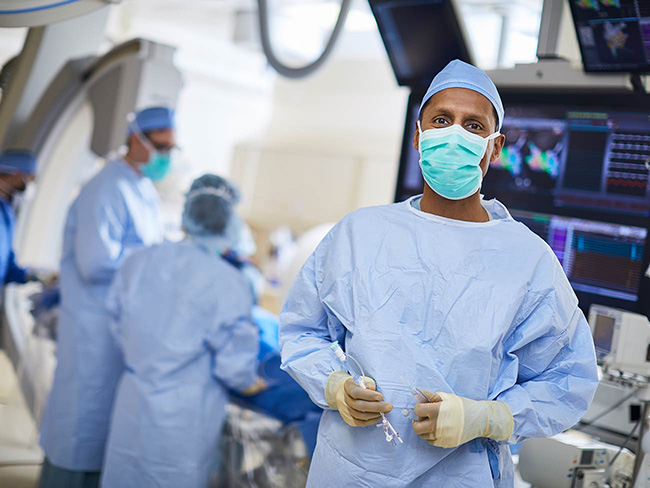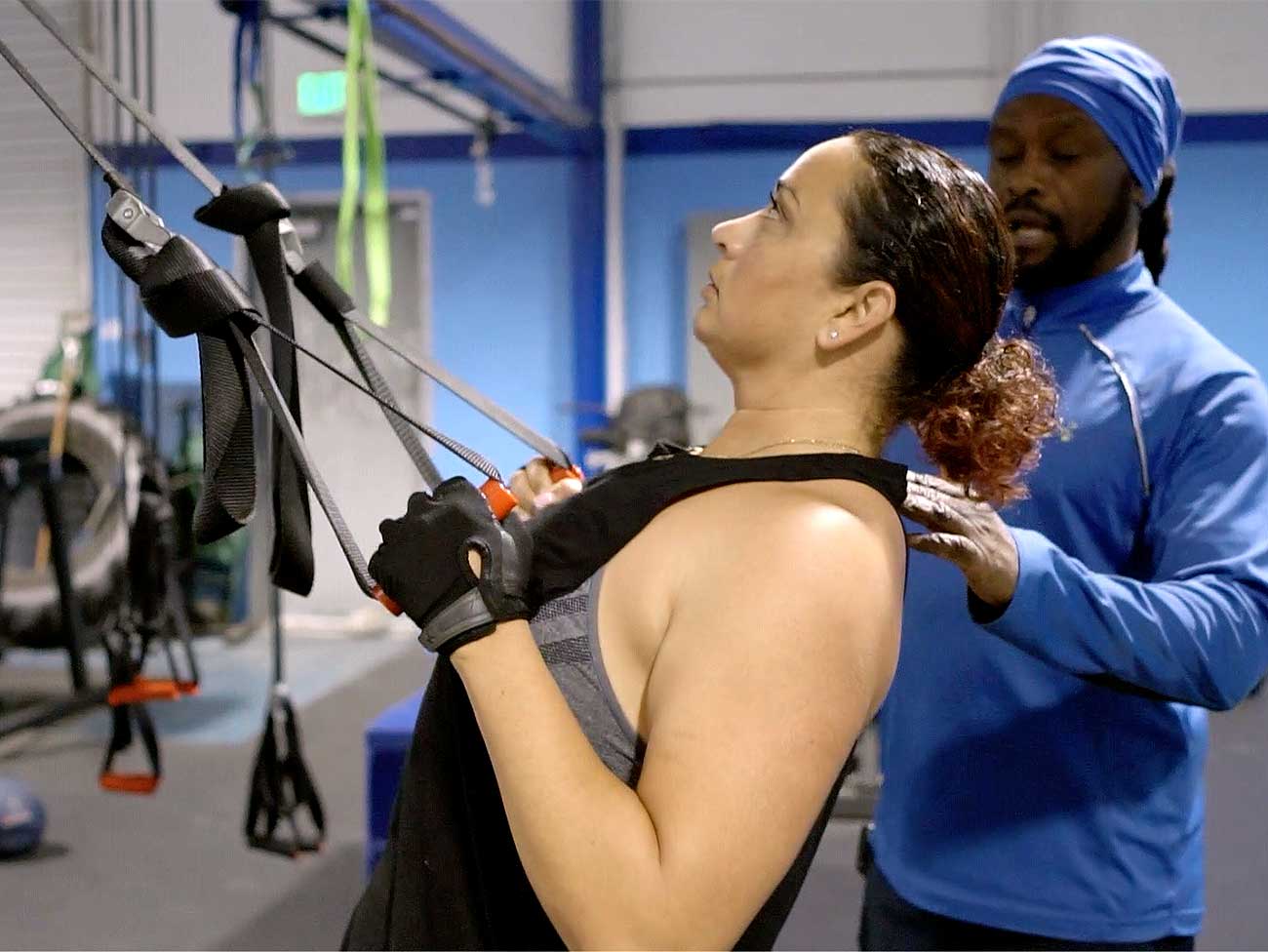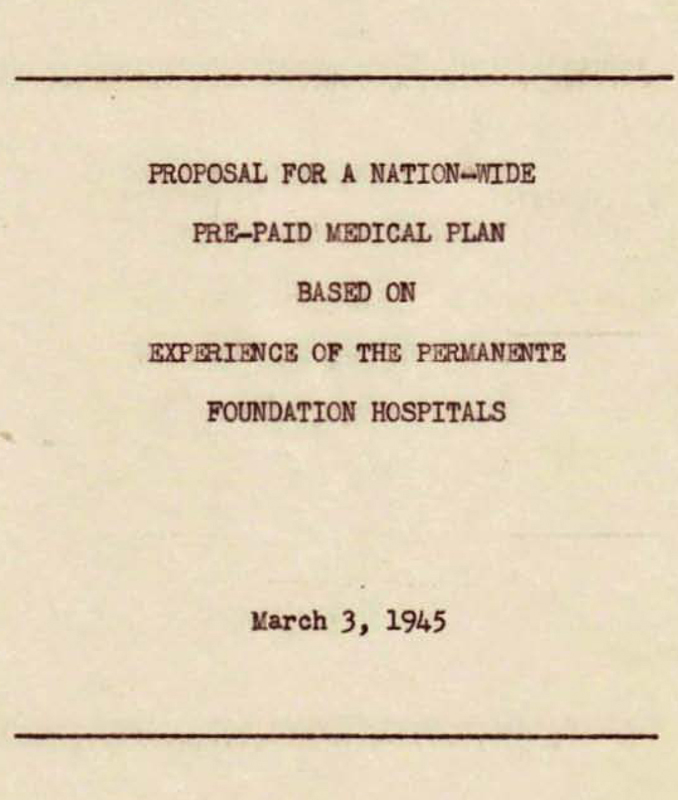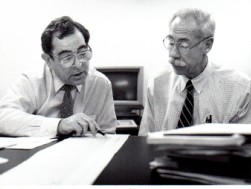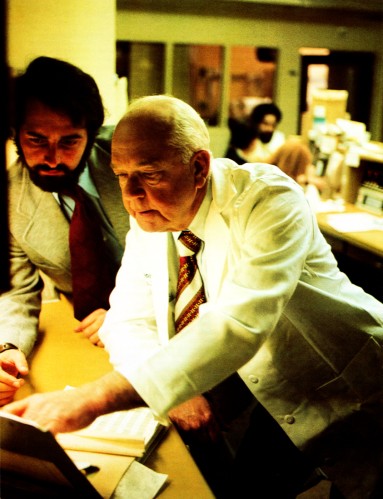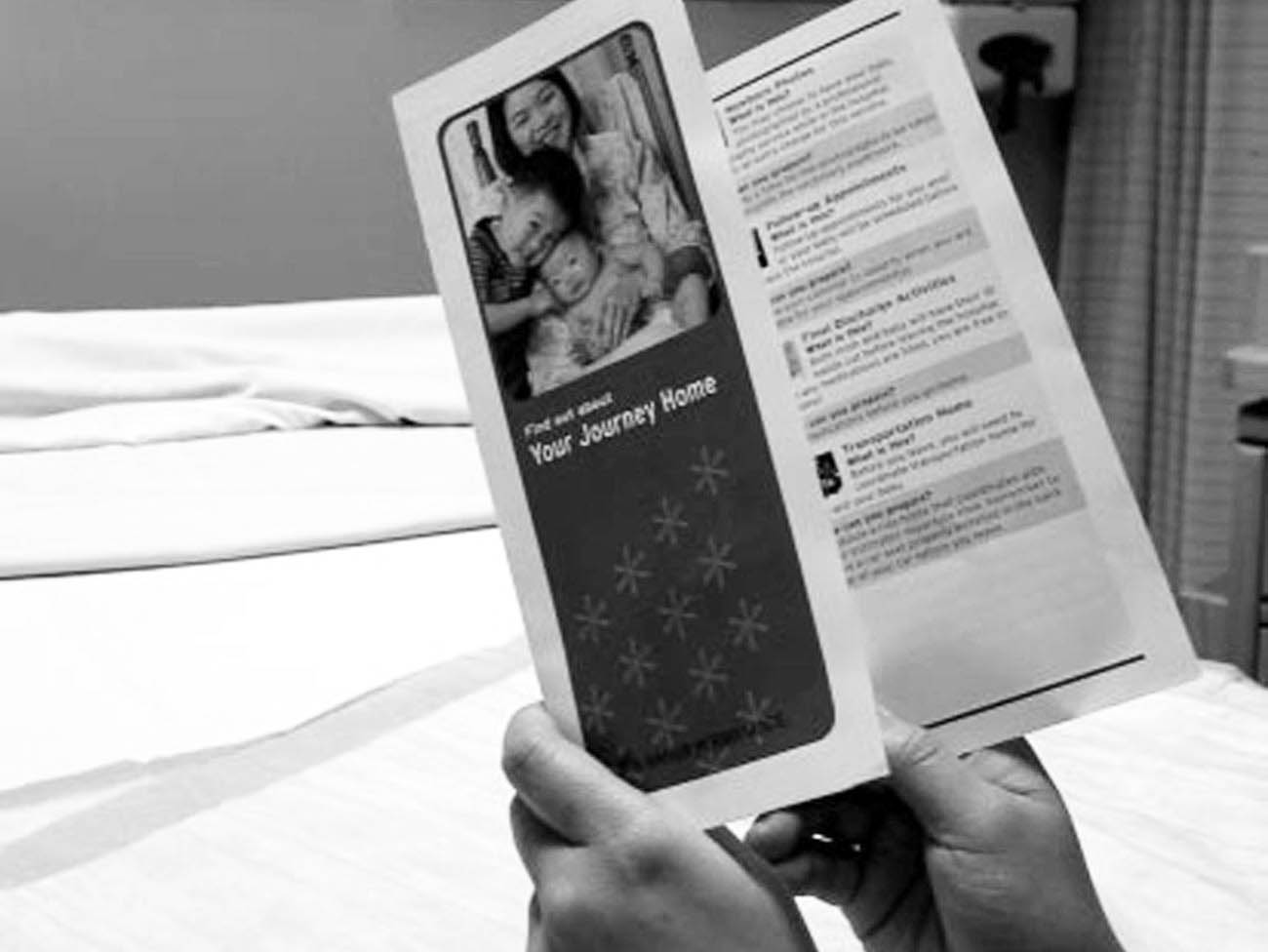Treating the heart and lungs together for a rare disease
With her medical teams working together, Sirina Hazeem is getting her life back, thanks to a highly specialized Pulmonary Hypertension Clinic in Oregon.
Sirina Hazeem credits the care she received from her care team, including her pulmonologist (pictured with her), Dr. Jonathan Rettmann, for her recovery.
When Sirina Hazeem woke up after what was expected to be routine bunion surgery, her surgeon told her she was lucky to be alive.
While she was under general anesthesia, her blood oxygen plummeted, and her blood pressure skyrocketed. Follow-up tests revealed that she had a rare disease called pulmonary arterial hypertension.
Pulmonary hypertension is caused by high pressure in the blood vessels that lead from the right side of the heart to the lungs. This pressure makes it harder for the heart to pump blood to the lungs. Over time, the added strain can damage the heart.
The disease is very rare. So it’s not uncommon for pulmonary hypertension to come as a surprise like it did for Hazeem, according to Emily Cedarbaum, MD, a Kaiser Permanente cardiologist in Oregon. And the primary symptoms — shortness of breath, fatigue, lightheadedness — are common and are usually caused by other, more common underlying problems.
My energy level is better and I’m gradually able to exercise more. I don't feel like I'm an 80-year-old anymore. I feel a lot younger. Sirina Hazeem
Hazeem, who works as an office assistant for Multnomah County and runs a Middle Eastern restaurant in Portland, Oregon, with her husband, had been experiencing all those symptoms. In fact, her fatigue got so bad that, after walking up a staircase, she would have to rest for 5 to 10 minutes. And her blurry vision prevented her from working. But all heart and neurological tests came back normal.
Integrated care that can change lives
Today, about 4 years after that shocking diagnosis, Hazeem is being treated with coordinated care that many people don’t have access to. In many medical centers, the condition is treated by either the pulmonology department or the cardiology department.
“Because the pulmonary arteries go to the lungs, at most hospitals pulmonologists treat it,” said Dr. Cedarbaum. “But the biggest impact of having pulmonary hypertension is that the right side of the heart can start to fail, so you end up treating heart failure. And that’s where cardiology comes in.”
And that’s what makes Kaiser Permanente unique. Its specialized Pulmonary Hypertension Clinic in Portland brings pulmonologists and cardiologists together to care for members with this disease. The clinic also has support from specialized social workers and medical assistants. This multidisciplinary team can address the cardiac, pulmonary, and social work aspects of a member’s care during a single visit.
This makes it easier to diagnose the disease. And once that diagnosis is made, the team collaborates closely to ensure members get the best treatment for their condition.
A complex disease
There are several kinds of pulmonary hypertension, and many circumstances and conditions can cause it. These include a person’s genes, use of certain drugs, lung disease, heart disease, or other underlying diseases. In some cases, like for Hazeem, there is no known cause. This means treatment for pulmonary hypertension is complex and will be different for each person.
“Having both specialties in one clinic is highly effective,” said Jonathan Rettmann, MD, a Kaiser Permanente pulmonologist. “We bring complementary viewpoints that add to each individual case, so patients are always getting a second opinion when they come see us. There’s always another brain thinking about their case.”
In Hazeem’s case, that meant trying several approaches before finding one that worked. Common medications — from oral pills to medications delivered continuously by a pump she wore 24/7 — either didn’t improve her condition or caused side effects she couldn’t tolerate. When she and her care team decided to try a promising new medication, the doctors and pharmacists at Kaiser Permanente worked together to get it approved for her.
The new treatment and medication Hazeem is using is working. And Hazeem says she is finally getting her life back.
“This is a new class of medication and Sirina is one of the first members we’ve had on it,” said Dr. Rettmann. “It’s super exciting.”
“My energy level is better and I’m gradually able to exercise more,” she said. “I don't feel like I'm an 80-year-old anymore. I feel a lot younger.”

